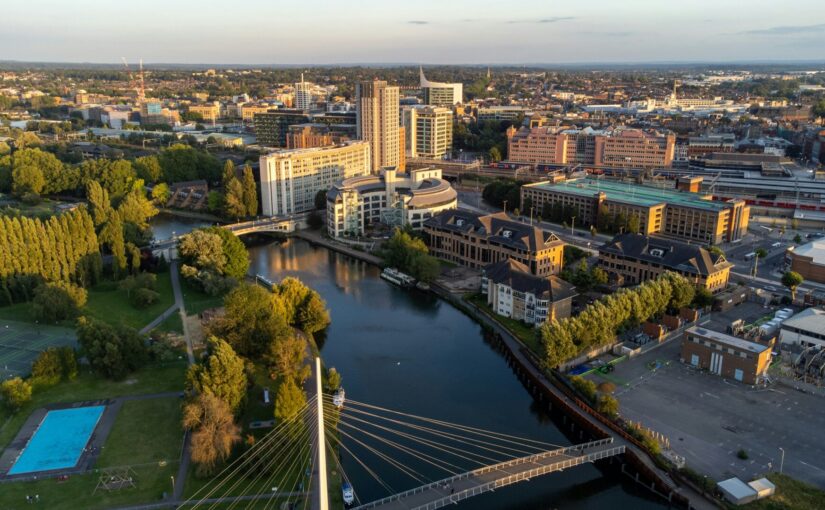Field of study in Wageningen: Business and Consumer Studies
Study period exchange: 01/01/2022 – 10/06/2022
Country (exchange): United Kingdom
City (exchange): Reading
University (exchange): University of Reading
Faculty (exchange): School of Agriculture, Policy and Development
2. Motivation for exchange
Why did you choose to go on study exchange?
Because I wanted to see if living abroad is a fit for me, and I really wanted to take this opportunity to experience living in a different place and culture.
What is the reason you chose for this country/university?
I have always appreciated the UK as a country, and was therefore drawn to it. Besides that, it was a big plus that I speak the countries home language, making it easier to fit in with locals and not get left out because I do not speak their language. Besides that, the university had the type of modules I wanted to follow, so therefore it was a great fit.
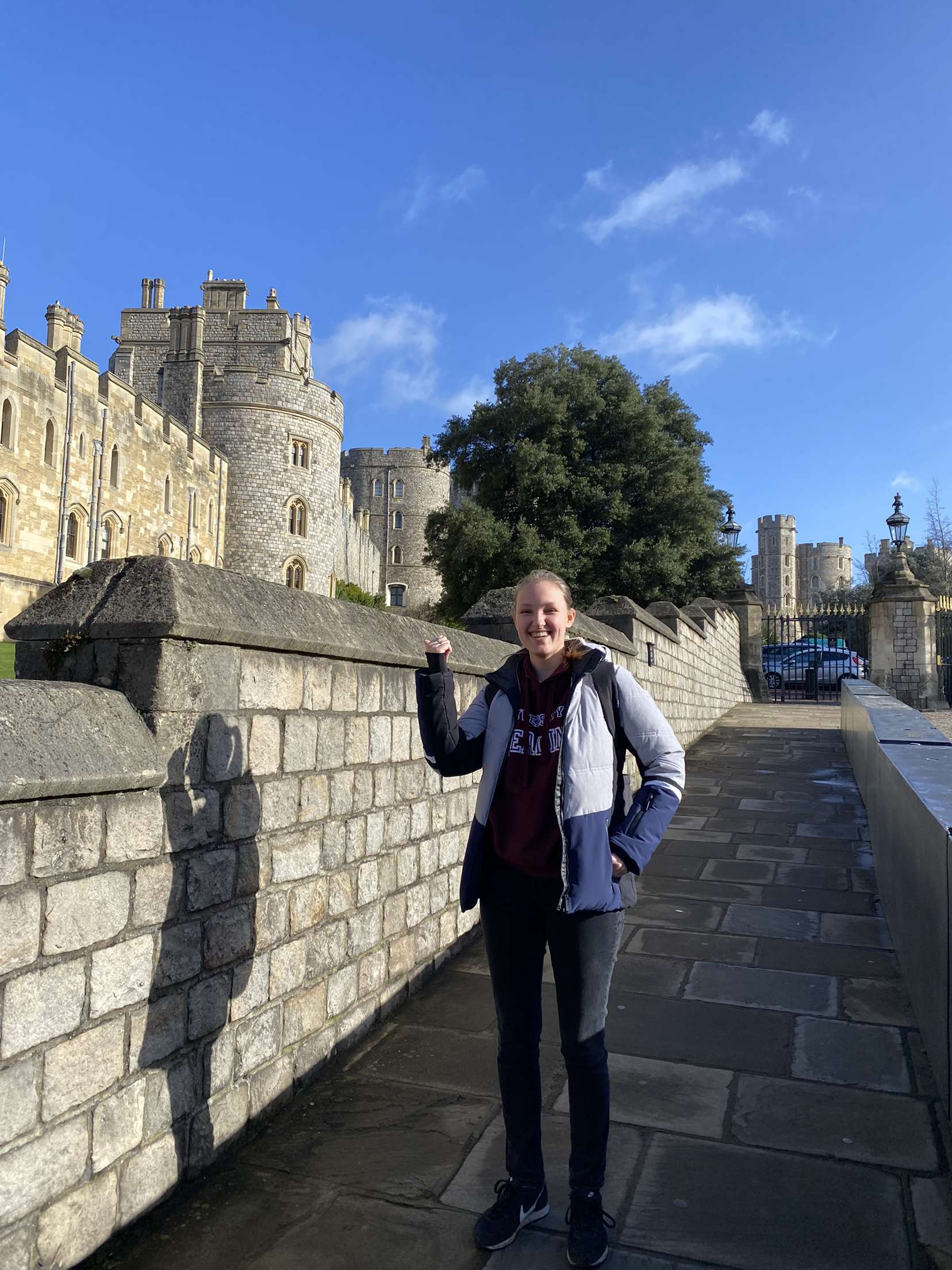
3. Accessibility to reach destination
Do you have any tips to reach your exchange destination?
Quite easily, once you have flown to London Heathrow Airport there is a bus (called RailAir) that goes to Reading station. From there it is upon arrival (because of suitcases etc.) easiest to grab a taxi (there are always taxi’s ready to go from Reading station) to whichever hall you live in, which will cost you about 8 pounds. If you do not want to do this you can take a bus to your hall. To figure out which one to take I recommend the app Reading Busses, which will show you the busses you can take and will allow you to buy a bus ticket through the app. A WARNING: My Dutch ING Debit car did NOT work when paying by card on the bus, so either have a credit card ready to buy your ticket online or in the bus, or have cash (they will not give you back any change).
4. University and studying
Could you provide some general information about the followed courses?

How is the study formalized?
It is important to know that this university has very little in-person real-time classes. I had about 1 class (of an hour long) a week per module. This means that studying at UoR includes a lot of self study (reading articles, lecture videos, etc.). In my experience, workload seemed to be lower compared to Wageningen, as well as a bit lower academic level for some modules.
What is the culture of the university?
Lecturers are quite approachable, making it easy to ask questions. Engagement with local student was quite limited, the only time this took place was during groupwork projects. The biggest difference is the lack of in-person classes, and very little explanation towards exchange students. I needed to figure out the university specific formats of work and such through local students, as lecturers will NOT provide any extra information to exchange students. An important difference to note is that with referencing Reading wants you to use the Harvard format, which differs slightly from APA.
What does the university offer the student additionally?
This university has basically everything on campus: when you live in halls you can choose for a catered room, but you can also use the dining facilities if you do not live catered, there are laundry machines and dryers, there is a sports park and many different sports societies, there are bars, cafés, and a student union (club) twice a week. They also sometimes offer activities through the student union and ‘home at halls’.
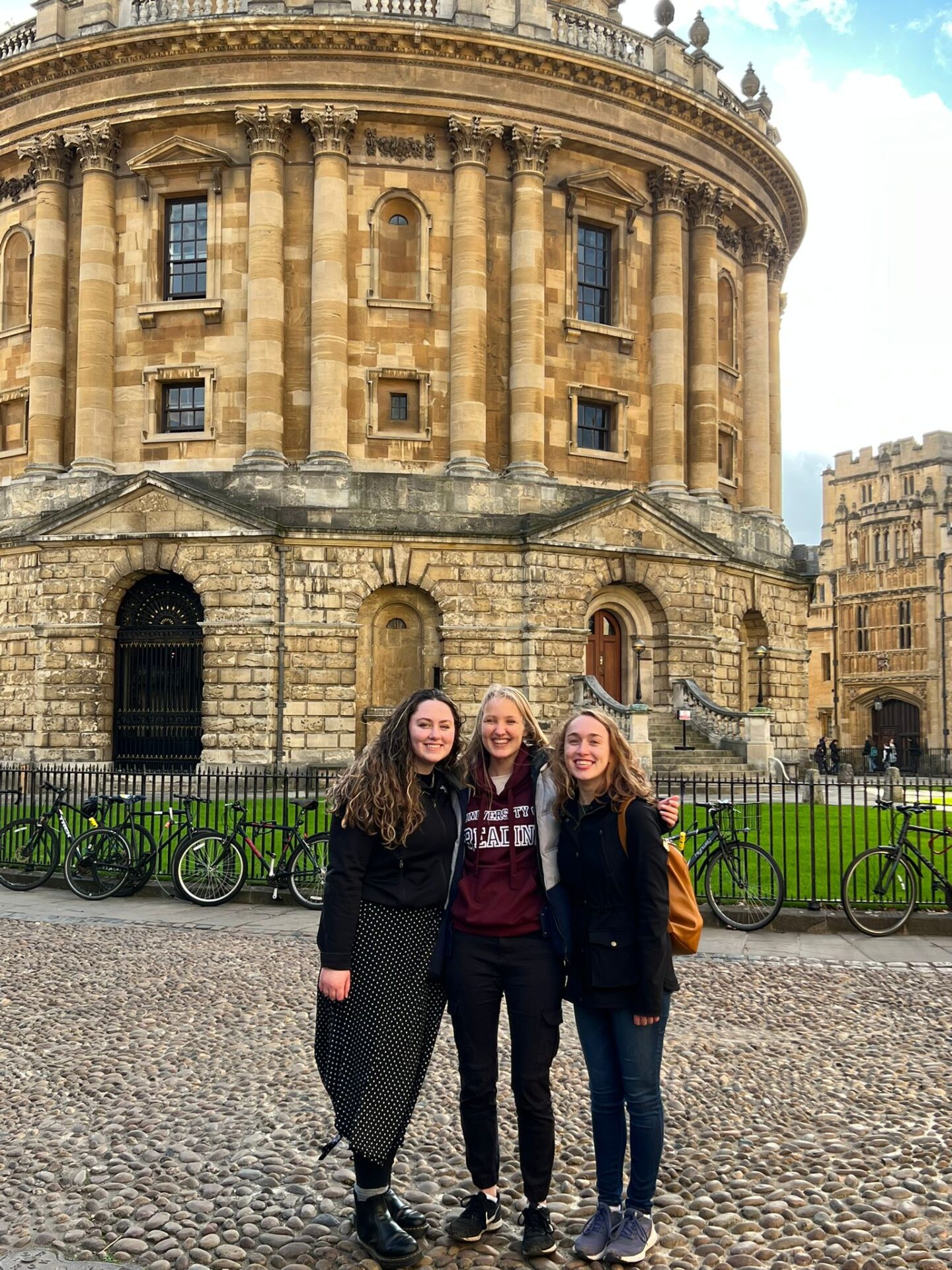
5. Housing-travelling-living
What are the possibilities for housing?
The easiest way to find living is through applying for halls. This is living on and around campus, for which you can sign up quite easily through UoR’s student portal. Here you can state some preferences (location, type of home, mixed or same-sex living etc.), however they do not at all guarantee you can get those preferences, so you do need to be flexible. Usually you will have about a 10m2 furnished room to yourself, with shared bathroom and kitchen facilities, and about 8-12 people in your hallway. Rent is very expensive, but does differ per room, so more shared facilities means lower rent. As a tip: Bridges Hall is quite popular: 10 people in your hall, shared facilities, a nice location near campus and the lake, and lower rent compared to other halls.
What is the culture of the country like?
Honestly in general the differences are not that extreme. Food wise it is quite similar to the Netherlands. They do have a lot of Indian food places here. Besides that, people are very polite, meaning they are less direct than the Dutch, so be cautious in that regard. University culture is different here, people do seem less motivated to study and go to university to have a fun time and go out a lot. That is something to be prepared for: it of course depends on the individual, but going out and drinking is standard practice here.
Could you give a general price indication of the place of residence compared to living in Wageningen?
Way more expensive, in Wageningen you can live for 300-450 a month, in Reading it will cost you about 130-180 pounds per week. Besides that, stuff such as groceries and drinks are also more expensive. It is also important to keep in mind the currency exchange.
Could you give some information about public transport infrastructure?
When you live in halls, the university is always accessible by foot. If you want to get into town centre, this will take you a bus ride. With the app Reading busses you can easily buy a 1 day boost, meaning that for 3 pounds you can take any bus you want in the Reading area. Besides that, there is a train station in reading which is useful for trips to near cities. Unfortunately train tickets are very expensive in the UK, so do not expect to travel far by train for little money. A retour ticket to London will cost you about 20 pounds (for train tickets the app Trainline is convenient).
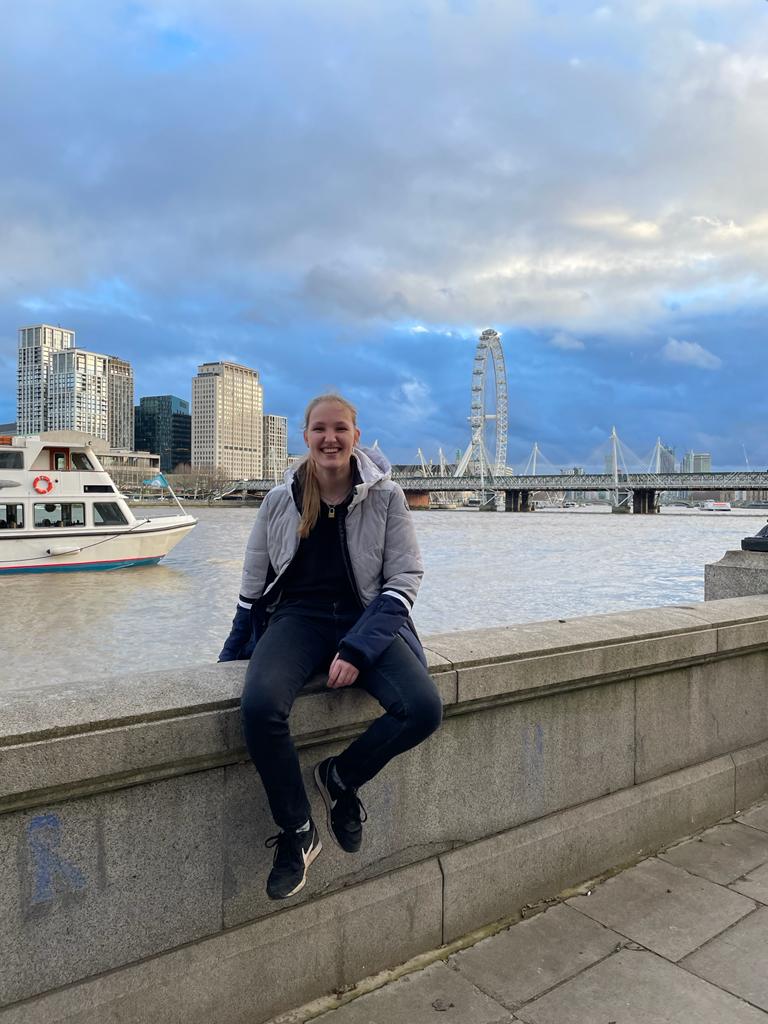
6. Free time
What are must-sees in the area?
In Reading itself there is not too much to do, except some shopping, pubs, the Oracle shopping centre and spinners (bowling, mini-golf and darts). Nearby towns that are a must-see are: London, Windsor (the castle), Cambridge and Oxford, they are all easily accessible by train.
What does not appear in the travel guide, but is worth a visit?
If you have time / money for a bigger trip I would suggest Dublin, and the nature areas around Dublin (such as the cliffs of Moher).
Do you have general tips and tricks about leisure time?
Restaurants: the food trucks on campus on Thursdays, Bill’s and Coconut Bar are nice.
For going out (as in clubs) people usually go to union on campus (Wednesdays and Saturdays), or to Lola Lo, Purple Turtle, or Q-club in centre.
For casual drinks there are a bunch of pubs in centre (Wetherspoons is classic cheap British), or Mojo’s and Park Bar on campus. In park bar they often show sports games, and in Mojo’s there are pool tables, and on Thursdays they have a quiz and karaoke.
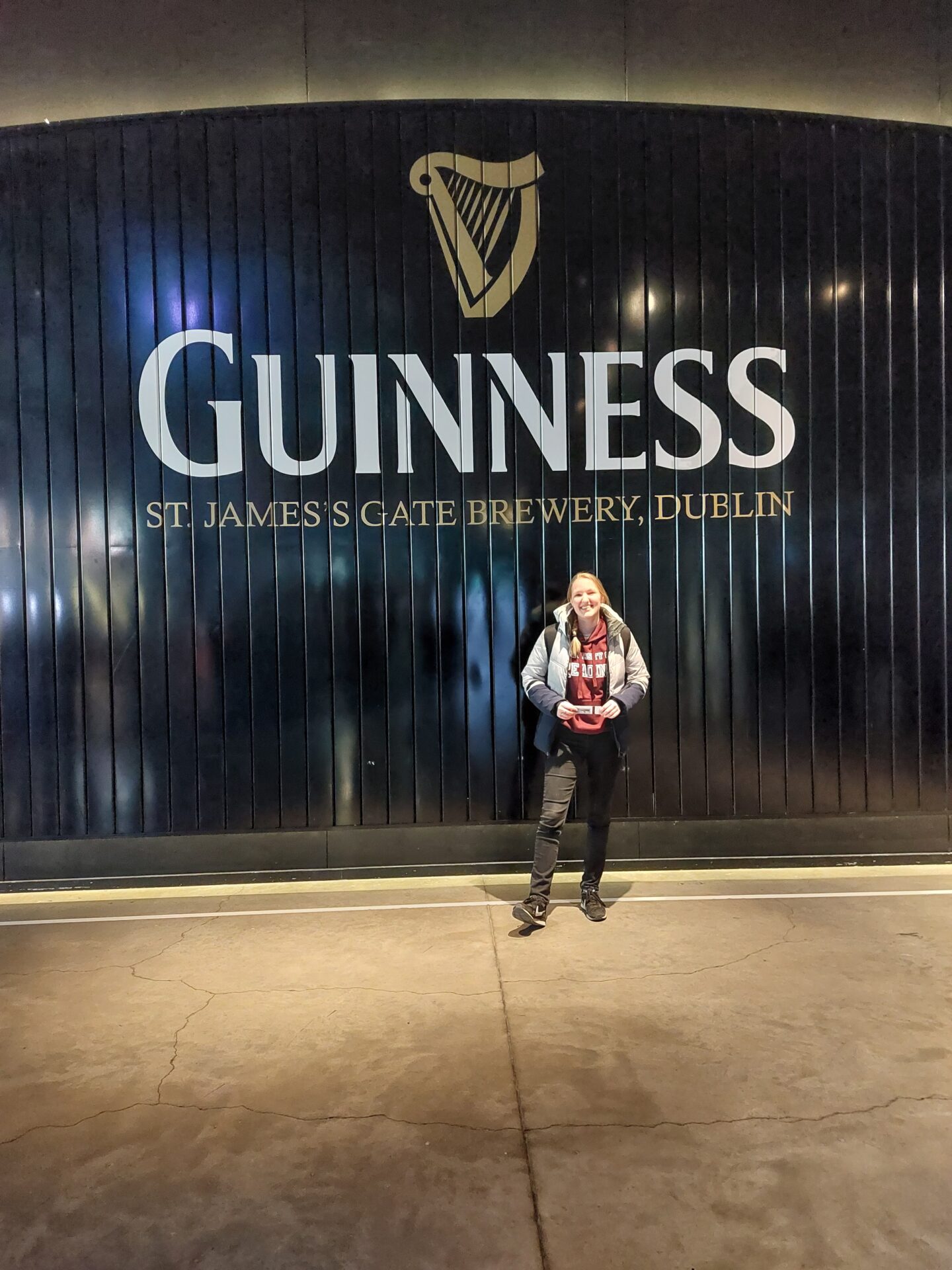
7. Challenges & best moment abroad
What was a challenge you have experienced?
The biggest challenge is connecting with locals. I did not get along well with my hallmates, which were the only locals I was in direct contact with, so I ended up becoming friends with a bunch of other exchange students (which is totally fine of course), which makes it a bit more challenging to experience the actual British culture.
What was your best memory abroad?
It is not one specific thing, I just really appreciate the living on-campus, creating a small town full of just students, which is really nice. The bar Mojo’s has a great atmosphere, and in summer their patio sessions with a DJ outside are very nice.
8. Contact Details
Would you like to ask Isa more questions about her exchange?
Send her a mail: mail4ivdh@gmail.com

